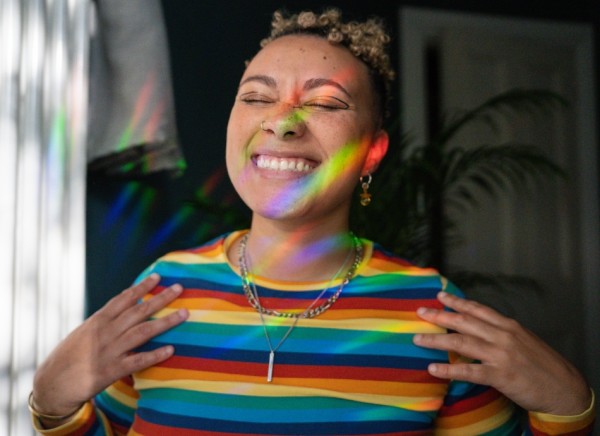If you're a frequent visitor to Healthify, why not share our site with a friend? Don't forget you can also browse Healthify without using your phone data.
Autism in adults
Key points about autism in adults
- Autism is a lifelong condition. It causes differences in communication, social skills and behaviour.
- It can show up in many ways and symptoms and behaviours can range from mild to extreme.
- Some people find out they have autism spectrum disorder (ASD) when they're children, others may not find out until they're an adult.
- People with ASD have a wide range of challenges and strengths that can vary with age and over time.
- The information on this page comes from HealthInfo Canterbury(external link).

Autism is a lifelong condition. It causes differences in communication, social skills and behaviour.
Autism shows up in many ways. We use the term autism spectrum disorder (ASD) to describe the full range of symptoms and behaviours, from mild to extreme.
People with ASD have a wide range of challenges and strengths that can vary with age and over time.
Some people find out they have ASD as a tamaiti (child), while others may not find out until they're an adult.
We don't know exactly what causes autism. Research shows that genetic factors are important.
Common signs of autism in adults include:
- Engaging differently in social situations, such as:
- avoiding or feeling uncomfortable with eye contact
- finding it hard to make or keep friends, or preferring to be on your own
- being very honest and transparent, which may make other people misinterpret you as being rude or not interested in them
- finding it hard to understand what others are thinking or feeling
- missing cues within conversation, such as body language, or whose turn it is
- finding it hard to say how you feel
- not understanding sarcasm or phrases such as 'break a leg' and taking things literally.
- Having repetitive behaviours or urges to move that seem unrelated to what's going on. These may increase if you're stressed, anxious or excited.
- Preferring order, rules and routines and finding it hard to cope with change.
- Experiencing sensations such as smell, touch, taste, texture, hearing and pain at a different level to others (either a higher or a lower level).
- Being able to focus on certain tasks or interests very closely and understand them in great detail.

Image credit: Canva
Women with autism are more likely to:
- have learned to hide signs of autism by copying people who don't have autism and suppressing some of the above signs
- be quieter and hide their feelings
- appear to cope better with social situations
- show fewer signs of repetitive behaviours or suppress them when with other people.
If you suspect that you may have autism, you may like to take a screening test(external link). The results aren't a diagnosis, but they may help you decide whether to seek a formal assessment.
To get a formal diagnosis of autism, you'll need a detailed assessment by a psychologist or psychiatrist. They'll also need information from someone who knew you when you were younger.
If you have severe mental health difficulties, your general practice team may be able to refer you for an assessment in the public health system.
You may choose to pay to see a private psychologist or psychiatrist.
Your general practice team can refer you to a psychiatrist or you can find one on Healthpoint(external link).
They might also be able to help you find a clinical psychologist or you can search for one on the New Zealand College of Clinical Psychologists website(external link) or on Healthpoint(external link).
The help and support you may need will depend on your individual needs.
It may include learning more about autism and connecting with other people on the autism spectrum through support groups.
Employers, training institutes and other places may be able to help you with support, such as making the environment less stimulating, providing clearer instructions and giving you more time to complete tasks.
Autism support
Altogether Autism(external link)
A free, nationwide autism spectrum disorder information and advisory service. You can also ask for personalised information answering your specific questions.
Autism New Zealand(external link)
Autism New Zealand connects people with autism through peer-based groups, and provides support, training, advocacy, resources and information on ASD including Asperger syndrome.
Disability Support Services – Autism Support Services(external link)
Information about support services for people with autism and their whānau (families).
Credits: Content shared between HealthInfo Canterbury, KidsHealth and Healthify He Puna Waiora as part of a National Health Content Hub Collaborative.
Last reviewed:





